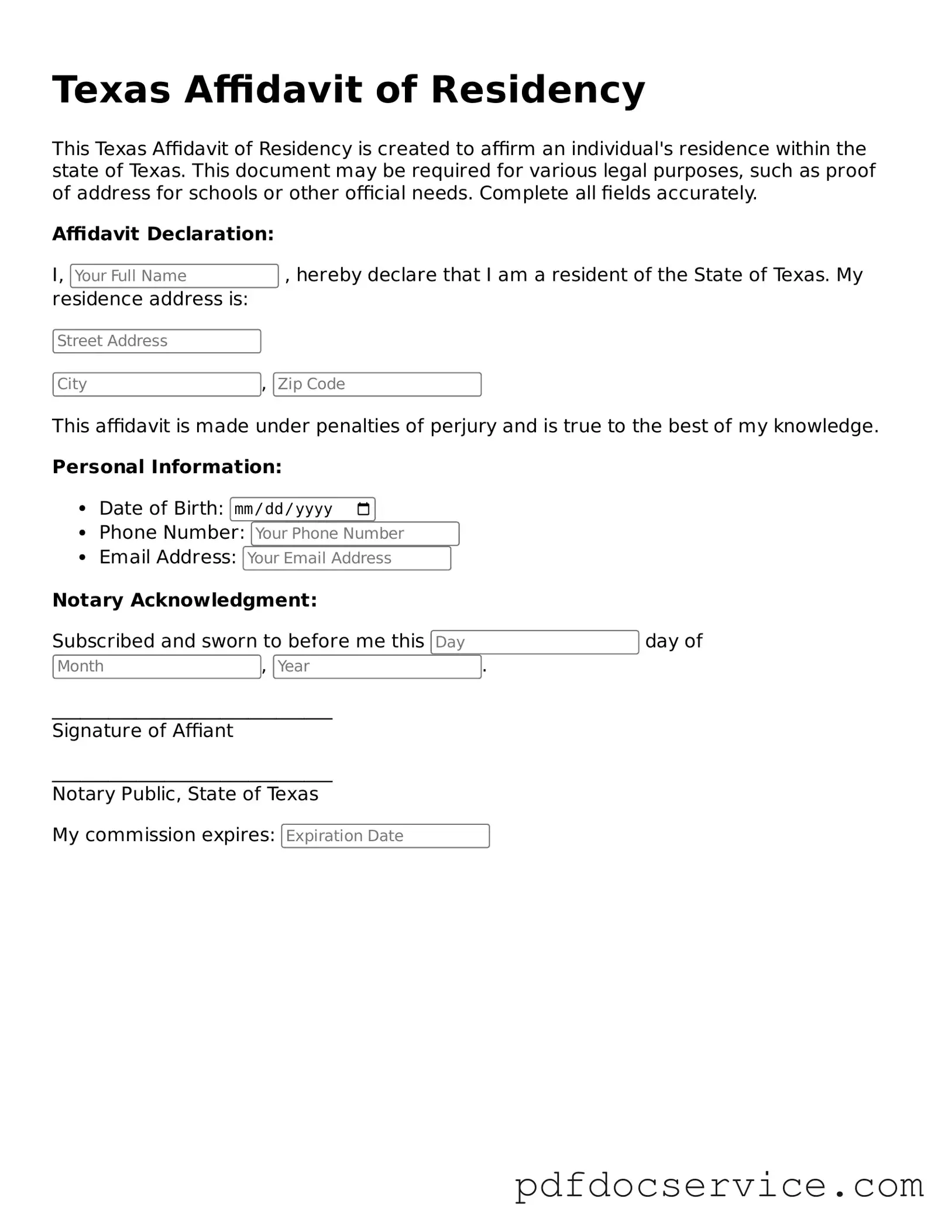Printable Affidavit of Residency Template for Texas
The Texas Affidavit of Residency form is a legal document used to verify an individual's residence in the state of Texas. This form is often required for various purposes, including school enrollment and obtaining certain state services. Understanding its requirements and implications can help residents navigate their legal obligations effectively.
Open Affidavit of Residency Editor

Printable Affidavit of Residency Template for Texas
Open Affidavit of Residency Editor

Open Affidavit of Residency Editor
or
Get Affidavit of Residency PDF
Finish the form now and be done
Finish Affidavit of Residency online using simple edit, save, and download steps.